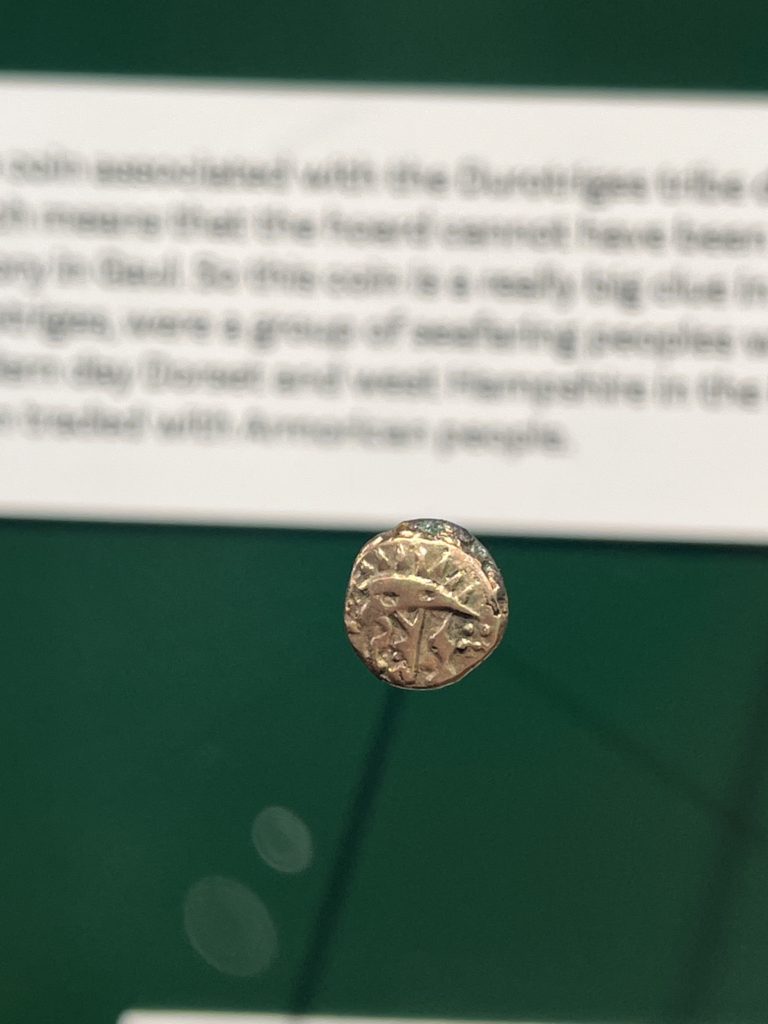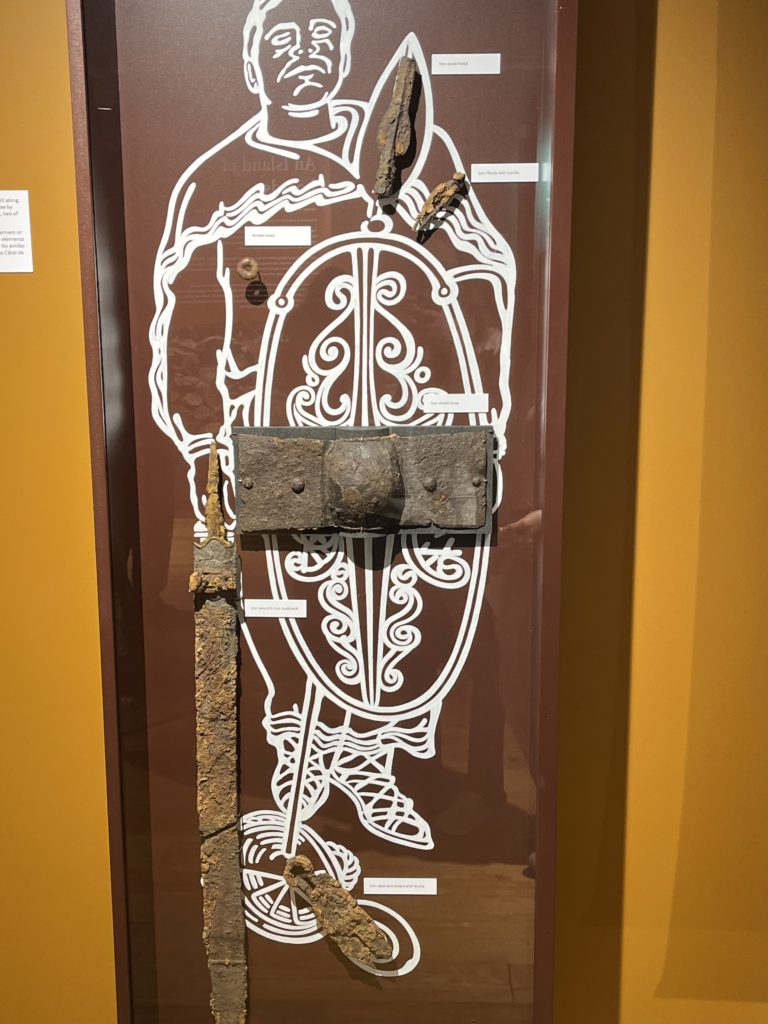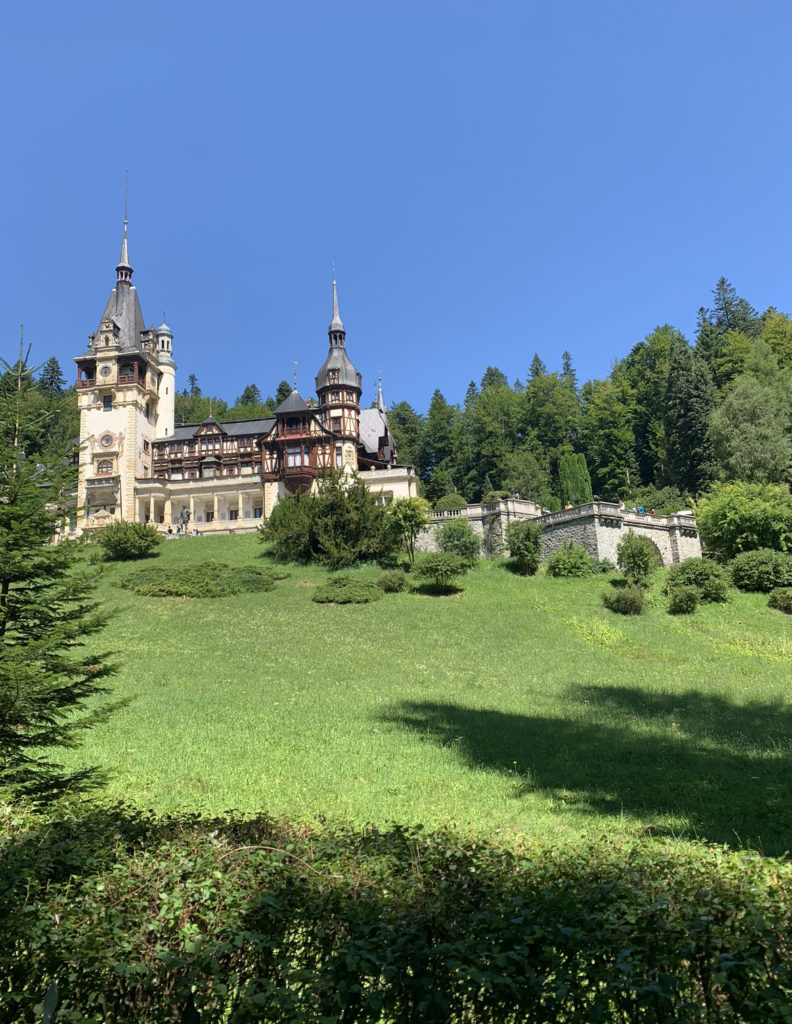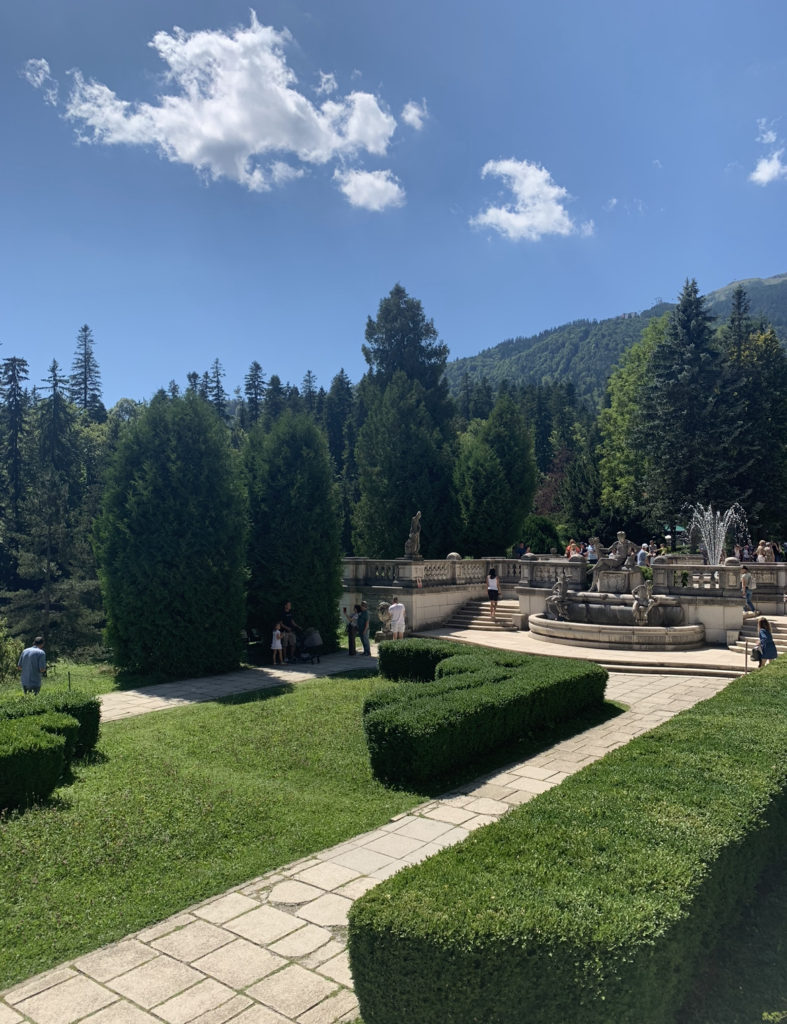

This week we attended a coin exposition where we were presented the world’s largest Celtic coin hoard.
The labels on the coins and other items such as an an old “Celtic purse”, or a sword stated the object and their use or that they belong to a certain Celtic tribe for example the label on the coin in the picture stated that it belonged to the Durotriges tribe. Associations can be acquired in history though triangulation, but in this case there is no concrete proof that that coin was truly associated with that specific tribe as in history we can estimate the time and region a certain object might be found in, but that does not mean that those specific details are 100% true and exact without knowing the context at the time being. For example the coin could be originated from a different region and brought over by travellers , therefore it is not certain that its meaning and origin are completely accurate. Therefore to acquire good evidence for a claim the evidence must be accurate and exact in order to claim that information as true.
Due to historical research not being an exact science, fact-finding in history is likely to become uncertain information, therefore it may not be possible to uncover what actually happened. Another example is in the second picture of the sword and remains of the shield. The diagram drawn depicts a man, but due to our uncertainty regarding the culture that cant be certain as the principles of the tripe are unknown.











